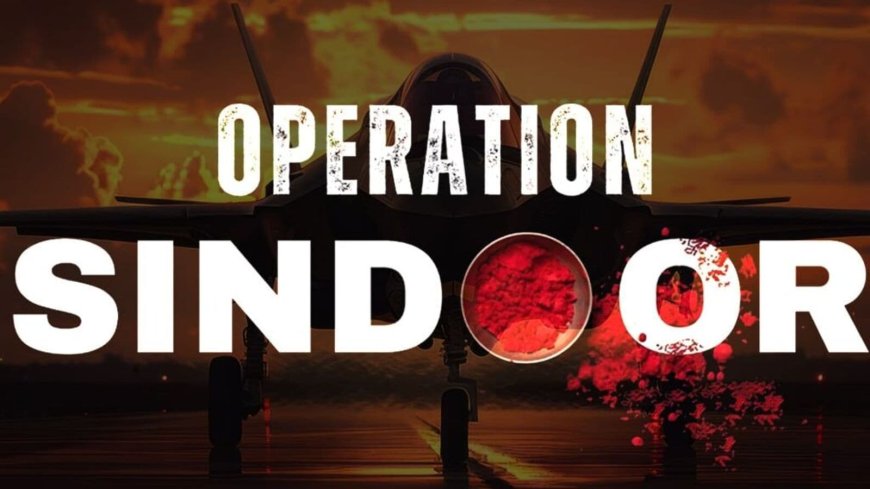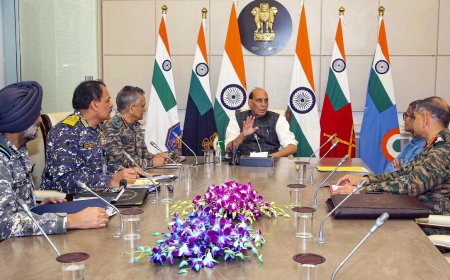Govt’s Fact-Checking Unit Swings into Action Post Operation Sindoor to Bust Misinformation
In the wake of Operation Sindoor, the Indian government’s fact-checking unit intensifies efforts to debunk false claims and misinformation across social media and news outlets.

Govt Fact-Checking Unit Swings into Action in the Wake of Operation Sindoor to Highlight False Claims
Introduction
As Operation Sindoor unfolded with dramatic precision and purpose on India’s border regions, the media narrative raced to keep up. Alongside television footage and social media hashtags came a surge of misinformation—edited videos, misleading statistics, and unverified claims. The Indian government’s fact-checking apparatus, spearheaded by the Press Information Bureau (PIB) Fact Check unit, responded with urgency, determined to prevent misinformation from undermining national security and sowing public panic.
Operation Sindoor: A Quick Recap
Operation Sindoor was India’s rapid-response maneuver aimed at neutralizing threats along volatile border regions. While details remain classified for strategic reasons, sources confirm that the operation involved coordinated efforts across intelligence, defense, and internal security agencies. The swift and decisive nature of the mission drew both domestic and global attention, turning it into a trending topic on multiple platforms.
With heightened visibility came misinformation—a natural byproduct of high-stakes conflict and hyperactive media. Recognizing the potential damage of fake news in such a sensitive time, the government quickly activated its digital verification systems.
The Surge of Misinformation
Within hours of Operation Sindoor trending on Twitter and YouTube, a barrage of doctored images and videos began to circulate. Some falsely claimed civilian casualties; others insinuated political motives behind the operation. A few even circulated old images from unrelated events, passing them off as “exclusive footage” from Sindoor's frontlines.
Adding to the chaos were manipulated news clippings, deepfakes of defense spokespersons, and fabricated WhatsApp forwards claiming “inside knowledge” of the operation’s next moves.
The aim was clear: mislead the public, undermine morale, and create confusion amid a crucial security mission.
Enter the Government’s Fact-Checking Unit
The Ministry of Information and Broadcasting’s fact-checking team, operating under PIB, swiftly initiated real-time monitoring of media channels, online portals, and social platforms. Equipped with AI-powered detection tools and a trained verification team, the unit began dissecting every suspicious claim.
Their Twitter handle, @PIBFactCheck, started debunking false claims within minutes of their appearance. A doctored video claiming to show an aerial strike during Sindoor was flagged, geo-tagged, and proven to be an old clip from Syria. Another viral post alleging troop casualties was countered with official army statements and credible photos.
The fact-checking unit not only posted corrections but also reached out to platforms like Facebook, Instagram, and YouTube, urging them to remove or flag misinformation at scale. Their efforts were bolstered by collaborations with independent fact-checkers and citizen reporters who helped flag suspicious content.
How the Fact-Check Mechanism Works
PIB’s fact-checking unit operates on a 24x7 model, especially during times of national importance. When Operation Sindoor began, the unit went into overdrive, setting up dedicated war rooms staffed with data analysts, media experts, and cyber investigators.
Here’s how the process unfolded:
-
Monitoring: AI-based software scanned millions of posts across platforms using keywords like “Operation Sindoor,” “India border,” and “terror strike.”
-
Flagging: Posts with high engagement and questionable sources were marked for human review.
-
Verification: The team cross-verified claims with official sources including defense briefings, press releases, and verified media footage.
-
Counterpost: If found false, a counter-narrative was posted with appropriate disclaimers and visual comparisons.
-
Platform Collaboration: Social media platforms were informed, and takedown requests were issued for extreme cases of disinformation.
Not Just a Defensive Move
While some view fact-checking as merely reactive, the government’s efforts were proactively timed to prevent panic and diplomatic fallout. The information vacuum that often follows high-stakes operations can be dangerous—misinformation fills it faster than verified reports can.
By stepping in early, the government ensured that India's official narrative remained clear and untarnished.
Political, Diplomatic and Civil Repercussions
India’s diplomatic allies welcomed the swift information hygiene maintained during Operation Sindoor. Statements from foreign embassies praised India’s transparent communication and the responsible handling of security-related disclosures.
Domestically, however, some opposition figures accused the government of using fact-checking as a tool to suppress criticism. In response, the PIB clarified that the fact-checking was only aimed at misinformation—not dissent. Transparency, they emphasized, is meaningless if facts are allowed to be distorted.
Civil society groups, including digital rights advocates, appreciated the balance between curbing fake news and maintaining open channels of verified reporting. The government, in a rare bipartisan show, also reached out to opposition leaders to brief them about Operation Sindoor, further preventing politicization.
The Role of Media Literacy
The government also used this episode to push for broader digital media literacy. Infographics explaining how to identify fake news, spot deepfakes, and verify sources were posted across platforms in regional languages. Campaigns under #ThinkBeforeYouShare and #CheckTheSource trended, helping bring public awareness into the fold.
What This Means Going Forward
The fact-checking response to Operation Sindoor wasn’t just a one-time event—it signaled a more muscular, strategic communication approach from the Indian state. In an era where wars are not just fought on land but also on timelines and TikToks, India’s preparedness to counter misinformation is now officially part of its national security doctrine.
Expect the government to enhance its fact-checking infrastructure further with multilingual teams, deeper partnerships with social platforms, and possibly even legal frameworks mandating cooperation in times of national crises.
Criticism and the Path Ahead
While the fact-checking unit’s work received praise, there were valid concerns regarding overreach. Critics warned against conflating fake news with negative press, urging transparency in how “fake” is defined. To address this, the Ministry has indicated plans to set up an independent advisory council to oversee the fact-checking processes.
A draft white paper is also reportedly in the works, which could lay the groundwork for an independent, third-party oversight body for official fact-checking initiatives.
Operation Sindoor may be over on the ground, but the battle for narrative dominance continues online. In this new age of hybrid warfare, where information can be weaponized, India's fact-checking unit has emerged as the first line of digital defense.
By acting swiftly, transparently, and with technological muscle, the government not only kept the public informed but also maintained strategic advantage against hostile narratives. The response to misinformation during Operation Sindoor sets a precedent—one that future administrations will likely build upon as digital misinformation continues to evolve.
What's Your Reaction?
 Like
0
Like
0
 Dislike
0
Dislike
0
 Love
0
Love
0
 Funny
0
Funny
0
 Angry
0
Angry
0
 Sad
0
Sad
0
 Wow
0
Wow
0












































































